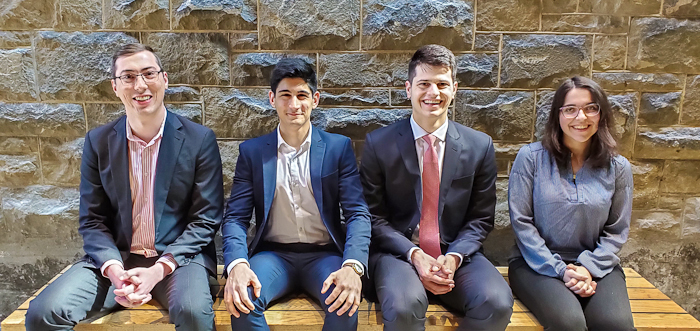
Année après année, les diplômés et diplômées de la Faculté de droit s’illustrent dans la course pour les prestigieux postes d’auxiliaire juridique à la Cour suprême du Canada. Cette année ne fait pas exception ; cinq ressortissants et ressortissantes de la Faculté prendront la direction du plus haut tribunal au pays en 2020-2021. Faites leur connaissance !
Liam Harris, BCL/LLB’18 (remplaçant du juge Gascon)
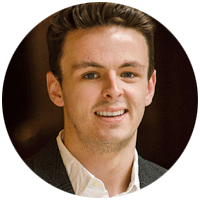 I’m from Guelph, Ontario. I moved to Montreal to study biology and political science at McGill before beginning my legal studies. During my time at the Faculty, I had the chance to work as a research assistant for Prof. Richard Gold and a group assistant for Prof. Fabien Gélinas. I was also involved with the Legal Information Clinic, the McGill Journal of Law and Health and published research focused on emerging technologies and international law. I’m currently articling at the Ministry of the Attorney General for Ontario and will be clerking at the Court of Appeal for Ontario next year.
I’m from Guelph, Ontario. I moved to Montreal to study biology and political science at McGill before beginning my legal studies. During my time at the Faculty, I had the chance to work as a research assistant for Prof. Richard Gold and a group assistant for Prof. Fabien Gélinas. I was also involved with the Legal Information Clinic, the McGill Journal of Law and Health and published research focused on emerging technologies and international law. I’m currently articling at the Ministry of the Attorney General for Ontario and will be clerking at the Court of Appeal for Ontario next year.
Why did you apply for a clerkship?
I loved learning about law in school and I was looking for more opportunities to learn. Clerking seemed like a good way to get a glimpse into how complex and difficult cases are decided while working with an exceptional mentor. It also seemed like a great place to interact with a diverse group of people from across Canada with different backgrounds and views on the law.
How did you find out you had been chosen?
I was attending a meeting with a couple of the lawyers from my office and their clients. When I got the call, I excused myself as politely as I could and spoke with Justice Gascon. It was very surreal!
What areas of law interest you the most?
I have tried as much as possible to be a generalist. I find areas of law that deal with the limits of state power, like constitutional, administrative and international law, to be particularly interesting. Having studied ecology in undergrad, I have always had a soft spot for environmental law, and that’s what I’m currently exploring as an articling student.
Nikolas De Stefano (Juge Abella)
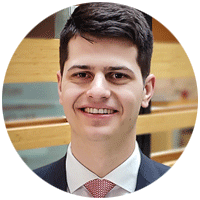
I was born and raised in Montreal, where I’ve lived for my whole life. Before studying law, I was a Cégep student at Marianopolis College. At the Faculty I volunteered at the legal clinic as a student advocate, I worked briefly as a research assistant for Professor Jutras and I am currently a student Clerk for Justice Marcotte of the Quebec Court of Appeal. Last summer I worked at IMK, a Montreal-based litigation boutique, and I will return there this summer. When I’m not studying, I enjoy watching and playing hockey.
Why did you apply for a clerkship?
I have really liked my experience so far as a student clerk at the Court of Appeal so it seemed like a natural next step for me to continue on to a full-time clerkship. In addition, I enjoy researching and writing, which is an important part of the job of a clerk. I am also extremely excited to regularly discuss and debate legal issues with a diverse group of smart and interesting people—whether they be other clerks or a Justice on the Court.
How did you find out you had been chosen?
I was watching soccer, trying to take my mind off of the interview process when I saw a call from a blocked number. I picked up the phone and heard Justice Abella ask me if I still wanted to clerk at the Supreme Court—the rest of our short conversation is sort of a blur.
What areas of law interest you the most?
I am especially interested in comparative private law, especially in the field of obligations—both contractual and extra-contractual. I am also interested in civil procedure and how the legislature tries to achieve policy goals through rules of procedure.
Mélisande Charbonneau-Gravel (Juge Martin)
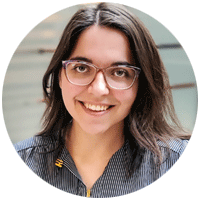 I was born and raised in Abitibi-Témiscamingue. Before starting my legal studies, I completed an intercultural exchange in Madrid and an international baccalaureate in languages and cultures at Cégep Garneau in Quebec. During my time at McGill, I worked as a Research Assistant for the Crépeau Centre for Private and Comparative Law and for Dean Robert Leckey. I was also a student clerk for Justice Frédéric Bachand and Justice Pierre C. Gagnon at the Superior Court of Quebec. Throughout law school, I was committed to the equality of all before the law and to increasing awareness of disability issues in Canadian law. For instance, I was a legal intern at Dans la Rue and a Coordinator of the Rathlyn Disability & the Law Program of the McGill Centre for Human Rights.
I was born and raised in Abitibi-Témiscamingue. Before starting my legal studies, I completed an intercultural exchange in Madrid and an international baccalaureate in languages and cultures at Cégep Garneau in Quebec. During my time at McGill, I worked as a Research Assistant for the Crépeau Centre for Private and Comparative Law and for Dean Robert Leckey. I was also a student clerk for Justice Frédéric Bachand and Justice Pierre C. Gagnon at the Superior Court of Quebec. Throughout law school, I was committed to the equality of all before the law and to increasing awareness of disability issues in Canadian law. For instance, I was a legal intern at Dans la Rue and a Coordinator of the Rathlyn Disability & the Law Program of the McGill Centre for Human Rights.
Pourquoi avez-vous postulé ?
Le poste d’auxiliaire juridique m’offrira l’occasion unique de faire de la recherche concernant deux traditions juridiques et touchant des enjeux qui ont de grandes répercussions sur la société, le tout dans un milieu fort stimulant. J’aurai aussi la chance d’approfondir ma compréhension des processus décisionnels qui façonnent l’interprétation des normes juridiques. Finalement, je pourrai observer l’aspect plus pratique du travail à la Cour et échanger avec des collègues provenant de différents milieux.
Comment avez-vous appris que votre candidature avait été retenue ?
J’étais dans la voiture avec ma famille. Après mes entrevues, nous avions passé la journée à visiter Ottawa avec mon amie allemande de passage au Canada. Plus tard, en route vers Montréal, j’ai reçu un appel de l’honorable Sheilah Martin. Après l’appel, nous avons dû nous arrêter à une station-service pour célébrer.
What areas of law interest you the most?
I am interested in a variety of areas of law, in both private and public law. I have a specific interest in Indigenous law. During my legal studies, most of my work focused on Aboriginal law in the context of Canadian federalism. I also worked on many issues related to disability and the law as well as family law.
Jesse Hartery (remplaçant du Juge Gascon)
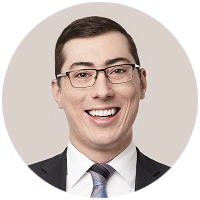
Je suis originaire de l’Ontario et j’ai complété un baccalauréat en histoire et en études asiatiques à l’Université d’Ottawa. Pendant mon temps à la Faculté de droit, j’ai, entre autres, été bénévole au Centre communautaire LGBTQ+ de Montréal, co-coordonnateur de la section mcgilloise du Réseau national d’étudiants pro bono, cofondateur et co-président de la Société Runnymede de McGill, assistant de recherche auprès des professeures Johanne Poirier et Yaëll Emerich, et auxiliaire juridique auprès du juge Mark G. Peacock de la Cour supérieure du Québec. J’ai aussi publié des articles en droit public, dont un article qui paraîtra prochainement dans la Revue de droit de McGill. Je suis présentement à l’École du Barreau du Québec et je ferai mon stage dans le bureau montréalais de Fasken.
Why did you apply for a clerkship?
This position appealed to me given my interest in the intellectual aspects of law. A clerkship at the Supreme Court will allow me to consider how legal principles are applied to the novel contested cases our apex court is confronted with on a daily basis. In addition, this is an amazing opportunity to work in a bilingual and bijuridical environment with some of Canada’s sharpest legal minds.
I was also motivated to apply on the recommendations of Professors Poirier and Emerich. I learned a lot from them and I’m very thankful for their support over the last four years. Part of the credit is also owed to the friends I’ve made through my involvement with the Runnymede Society, who have been a constant source of encouragement on this front. It was a pleasure to be surrounded by people who are committed to intellectually rigorous, open debates about the ideas and the ideals of constitutionalism, the rule of law, and individual liberty during my time in law school.
Comment avez-vous appris que votre candidature avait été retenue ?
J’étudiais pour les examens du Barreau quand mon téléphone a commencé à sonner. J’ai répondu au téléphone et j’ai entendu la voix du juge Gascon. Il m’a offert un poste comme auxiliaire juridique à la Cour et j’ai accepté avec enthousiasme. Peut-être un peu trop d’enthousiasme ! Je ne peux vous dire à quel point c’est excitant de recevoir un appel de ce genre d’un juge de la Cour suprême. J’ai passé le reste de la soirée à informer ma famille, mes amis, mes collègues et mes anciens professeurs.
Tiran Rahimian Bajgiran (Juge en chef Wagner)
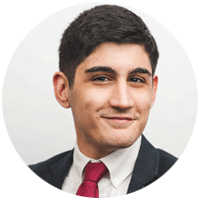
I was born in Tehran, and spent most of my childhood in Montreal. I went through the enchantingly diverse École secondaire Saint-Luc and Cégep Vanier College, before heading to the comparatively less diverse but equally charming McGill Faculty of Law. I will graduate from the BCL/LLB program this fall (SAO willing and the creek don’t rise), with a few awards and distinctions to my name. I will receive the Lieutenant Governor’s Youth Medal this month, in recognition of my civic engagement while at McGill.
Parallel to my studies, I clerked for the Chief Justice of the Quebec Court of Appeal, served on the editorial board of the McGill Law Journal, volunteered at several legal clinics, and interned at a leading human rights NGO in New York. I also worked as a research assistant to three law professors, as well as the UN Special Rapporteur on Extrajudicial Executions. I enjoy writing sometimes, and have penned several academic and non-academic articles for public engagement.
Pourquoi avez-vous postulé ?
D’une part, je voulais mettre à profit mes compétences en recherche au sein d’un environnement qui reflète parfaitement les marques distinctives de McGill — critique, bijuridique et (passivement) bilingue. D’autre part, j’estimais qu’un stage à la Cour suprême serait une occasion unique de contribuer, tôt dans ma carrière, à une institution qui à mes yeux joue un rôle de premier plan dans la promotion des droits de la personne. C’est surtout mon expérience en tant que recherchiste étudiant à la Cour d’appel du Québec qui m’a sensibilisé au rôle important du processus d’appel en matière de droits de la personne, un rôle marqué à mes yeux par une perspective de politique sociale. Pour paraphraser les propos de l’ancien juge en chef Lamer, très fréquemment à la Cour suprême, deux litiges se déroulent simultanément : un litige bipolaire opposant les parties immédiates, mais aussi à l’intérieur de celui-ci une question polycentrique relative à la Charte canadienne des droits et liberté.
How did you find out you had been chosen?
I was sitting in the upper atrium, peacefully sipping on my third Diet Coke of the day. 1Ls had just finished class and were loudly approaching in waves. My phone rang, displaying a cryptic “No Caller ID.” Having been prank called twice that same month by blocked calls, and not expecting a call so soon after my interview, I picked up expecting to be disappointed. I was not disappointed.
Certaines réponses ont été abrégées à des fins de publication.
